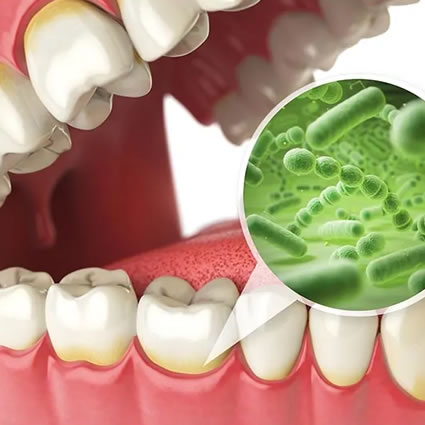 Alzheimer’s disease is the leading cause of dementia, which causes memory loss, changes in behaviours to loss of bodily functions.
Alzheimer’s disease is the leading cause of dementia, which causes memory loss, changes in behaviours to loss of bodily functions.
What is Alzheimer’s Disease?
Alzheimer’s disease is the disease of the brain and nerves that are thought to be caused by misfolded (disrupted in formation) protein in our brain. Some tried drugs to reduce the amount of misfolded proteins, but those drugs do not seem to work very well.
How do Gum Bacteria and Alzheimer’s Disease connect?
Scientists recently found that the gum bacteria (P. gingivalis) produces toxins called gingipains which degrades and converts human proteins to the infamous misfolded proteins.
Scientists suggest that Gingipains piles in the brain, produces misfolded proteins, causes Alzheimer’s Disease.
To test this, scientists tried gingipain-neutralizing drugs on mice injected with gingipains and found that mice with gingipain-neutralizing drugs managed to have healthy brain cells but mice with no neutralizing drugs, when injected with gingipains, ended up with degenerate brain cells.
Also, although unrelated, gingipains is also implicated in other diseases like rheumatoid arthritis and aspiration pneumonia.
What does this mean for you?
Scientists suggest that we brush and floss our teeth regularly and visit a dentist or hygienist at least once a year for a professional clean. Smokers and older people may have to have professional clean more than once per year.
At Caringbah Dental Care, we recommend professional clean once or twice per year depending on conditions, and we clean the teeth and gum thoroughly to ensure and we aim to remove 99% of plaque and calculus (dental stone), which harbours bacteria producing gingipains.
Call (02) 9524 7047 or visit us at Shop 3/10-20 Mackay St in Caringbah.
Sources:
Gum bacteria implicated in Alzheimer’s and other diseases (https://www.sciencedaily.com/releases/2019/04/190407144231.htm)
Oral bacteria may be responsible for Alzheimer’s disease (http://sitn.hms.harvard.edu/flash/2019/oral-bacteria-may-responsible-alzheimers-disease/)
Any surgical or invasive procedure carries risks. Before proceeding, you should seek a second opinion from an appropriately qualified health practitioner.
